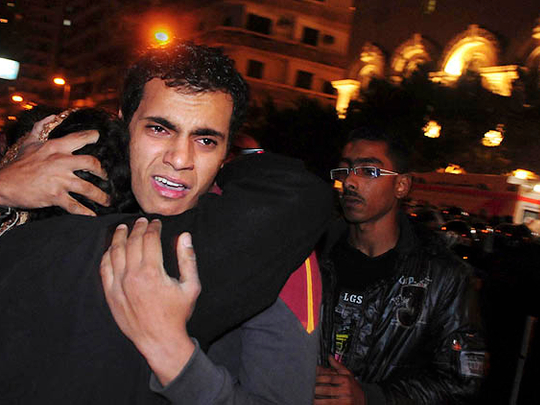
Two incidents, barely a week apart prompt me to sit up and take to the pen. The first happened during a midnight mass on New Year's Eve by a church in Alexandria, Egypt. A powerful bomb was set off killing 21 people, mostly followers of the Coptic faith. The powerful explosion was reportedly set off by a suicide bomber who had prepared his grim New Year package with nails and ball bearings which tore through a crowd of churchgoers as they left the church. In addition to the dead, the blast wounded 79 others and set havoc to the neighbourhood under siege.
The other incident took place a few days later in Pakistan when Salman Taseer, the governor of Punjab, the country's largest province, was shot dead at close range in the capital city of Islamabad with bullets right through the heart by one of his own armed guards, a member of the provincial police's elite force. The perpetrator, Malek Qadri managed to discharge 26 rounds into the governor before he was finally apprehended.
In the massacre at Alexandria, no one had immediately claimed responsibility for the attack, although the method and manner of the blast which appeared designed to inflict maximum civilian casualties, bore the hallmark of radicals inspired by Al Qaida.
In an address to the nation following the attack, Egyptian President Hosni Mubarak stated, "This act of terrorism shook the country's conscience, shocked our feelings and hurt the hearts of Muslim and Coptic Egyptians. The blood of their martyrs in the land of Alexandria mixed to tell us all that all Egypt is the target and that blind terrorism does not differentiate between a Copt and a Muslim."
And Egyptian activists had called for Muslims to form human shields around churches during Thursday's Christmas Eve celebrations as a gesture of solidarity with their Christian brethren.
In Pakistan, although the Prime Minister Yousuf Raza Gilani announced three days of mourning for Taseer and the Punjab provincial government ordered all institutions and schools to shut down on Wednesday, it appeared that many Pakistanis were not saddened by his violent death. His end came about at the hands of his bodyguard, allegedly enraged at Taseer's vocal opposition to a blasphemy law that was used to punish apostates from Islam with death. On a TV show, a caller went as far as to state, "It was a glorious act that Qadri did for Islam."
Personal vendettas
Since the death sentence was enacted in 1986, the number of those charged under these laws has soared to 962, but most of these cases under close examination reveal personal vendettas behind the moves or are often used by extremists as cover to persecute religious minorities.
Taseer, a liberal politician was the first to speak out against the treatment of Asia Bibi, a Christian farmhand who had been sentenced to death under Pakistan's unforgiving blasphemy laws.
It all started over 18 months ago in a small village in Pakistan's Punjab province. Over a hot summer day, a group of female farm workers were suffering in the heat. Asia Bibi, an illiterate 45-year-old mother of five, offered them water, but her offer of kindness was rejected.
Their reason? She was a Christian, and therefore her water was unclean, not an uncommon insult hurled at Pakistan's beleaguered Christians.
But rather than accepting the insult, she mounted a stout defence of her faith. Her outburst quickly filtered through the village and the imam took to his mosque's loudspeakers, beseeching his followers to take action against her.
Quickly, her defence of her faith was twisted into an accusation of blasphemy.
"These laws are used to victimise Christians and other groups," Taseer told reporters back in November.
"They are a foul leftover from the military regime of General Zia ul-Haq which lasted from 1977 till his death in a plane crash in 1988."
In a statement by the Jamaat-e-Ahl-e-Sunnat Pakistan "No Muslim should attend the funeral or even try to pray for Salman Taseer or even express any kind of regret or sympathy over the incident."
The group also added that anyone who expressed sympathy for the death of the Punjab governor was also committing blasphemy.
What right does this Jamaat have to demand that Muslims not pray for the souls of the dead? Who allowed these bands of misfits to hijack Islam, a religion of peace, to spread their brand of terror on people of other faiths or beliefs? Muslims must wrest their religion back from them.
At the risk of being branded an apostate or a heretic by some crazed cleric, I have to say it loud enough: Enough is enough! Quit promoting your distorted interpretations of Islam to justify the murder of the innocent. Murder is not an Islamic option. Stop invoking the name of Islam in the execution of your evil or barbaric agendas.
Tariq A. Al Maeena is a Saudi socio-political commentator. He lives in Jeddah, Saudi Arabia.












